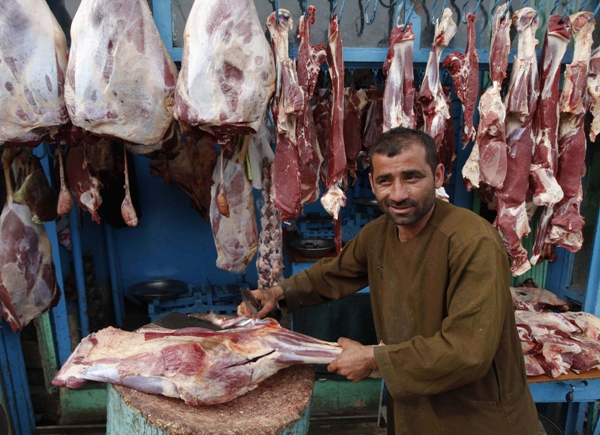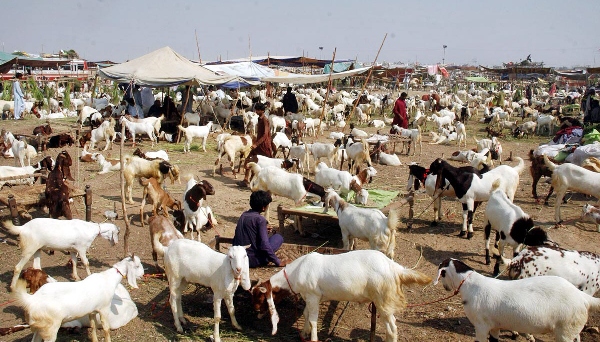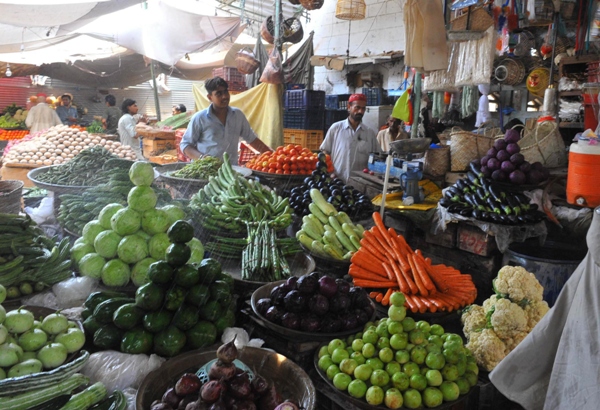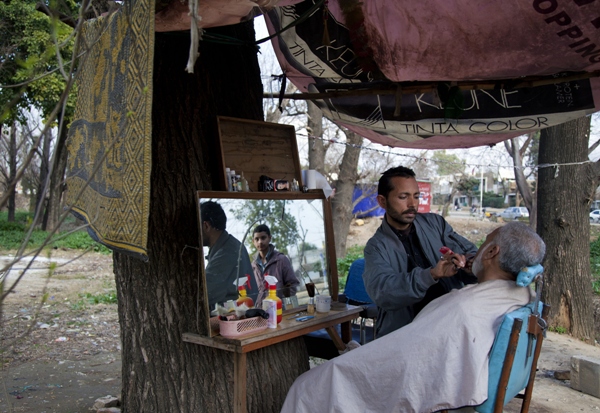
People enjoying the day at a beach in Karachi.
After having breakfast and reading the Smoker’s Corner on Sunday, I went to a butcher shop.
Traditional butcher shops are not a place to visit for the fainthearted in Karachi. They have an acquired smell, resulting from carcasses of goats hanging right above the butcher’s counter and an even row of chickens lined across, with feathers plucked and skin removed. The sections are divided into three: mutton, beef and chicken. The butchers wear bloodstained shirts while they work methodically.

A butcher cuts meat in his shop while posing for the camera.
Breeders from all over Sindh bring their cattle to the mandi (wholesale market). This mandi gives breeders the opportunity to showcase their product. The buyers visit this market and make the purchase. He said that the meat provided at his shop was of superior quality; I didn’t doubt him as we were one of his regulars.

A large number of animals seen at cattle market near super highway.
After the butcher’s, I went to the sabzi wala (vegetable shop). My sabzi wala has an active sense of humour which never fails to entertain but he had many concerns with how things were in recent times. We spoke about the types of garlic in the market. Usually they keep desi garlic and one other variety that comes from China. I told him about the crisis India’s facing due to the shortage of onions. I asked him if we should be afraid too.
He laughed and informed me that most of the onions in Pakistan come from Balochistan and the quantity is high this season. He was upset with tomatoes that Pakistan imported from India though. He proudly said the Pakistani tomato is far more superior in taste. He said he hated giving away a product that he wasn’t happy with.

Shopkeepers selling vegetables in Empress Market Karachi.

A barber is like a best friend, once you find a good one, you stick to them.
Consider yourself blessed if your barber understands and delivers. A barber is like a best friend, once you find a good one, you stick to them. My barber was passionate. He made sure that I was pleased with the outcome and he didn’t disappoint. You find people loving what they do everywhere; usually in places where we never look.
Chaotic as it may seem, Karachi is home. Karachi is a place to learn. Karachi is passionate. Falling in love with this city and its people is unavoidable. And like most love stories, your heart will be broken but that doesn’t stop you from loving.
